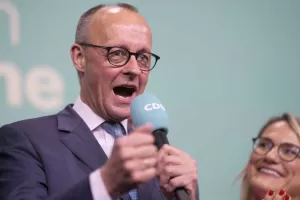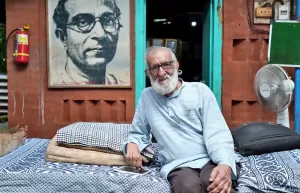Progressive Coalition Campaigning in Colombia Promises Real Change
W. T. Whitney
In Colombia Gustavo Petro and Francia Márquez on March 24 registered as presidential and vice-presidential candidates, respectively, for elections taking place on May 29. On behalf of the Historic Pact coalition, Petro stated that, “today is the first day of a campaign that promises to actually change the history of Colombia.”
He was, in effect, proposing that someday killings, disappearances and dispossessions would be gone. And no longer would elections be the exclusive province of oligarchs. Real democracy would replace the hollow version of Colombian democracy regularly proclaimed by U.S. officials.
The Historic Pact campaign scored well in primary elections held on March 13. Of 5.6 million Colombians voting in the coalition’s primary, 4.5 million of them chose Petro as presidential candidate. Significantly, 783,160 of them opted for Francia Márquez for the same office. Later, of course, Petro selected her as his vice-presidential running mate.
Other primary results were: of the 4.0 million people voting for the rightwing Team Colombia coalition, 2.2 million (54.2%) selected Federico Gutierrez as that coalition’s presidential candidate. Colombians loyal to the centrist Center of Hope coalition, 2.2 million in all, picked Sergio Fajardo as presidential candidate with 723,084 votes (33.5%). Results were reported also on many other presidential candidates running either as individuals or as candidates of other coalitions.
Voters also cast ballots on March 13 to fill 108 seats in the Senate and 187 in the House of Representatives. In Senate voting, the Historic Pact led with 2.7 million votes and 21 seats. The Conservative Party followed with 2.2 million votes and 15 seats. The Liberal Party with 2.1 million votes and 15 seats was in third place. Voting for delegates to the House of Representatives gave 33 seats to Liberal Party candidates, 29 to the Historic Pact, and 27 to Conservative Party candidates.
Because most legislators joining the new Congress represent many political groupings. For the Historic Pact legislators to do their work, they will have to form alliances.
Petro, a former M-19 urban guerrilla and mayor of Bogota, served in Colombia’s Senate. There he established himself as an implacable foe of two-term former president Alvaro Uribe, who personifies and has led the extreme right-wing sector of Colombian politics. In 2018, Iván Duque, an Uribe protegee and now the outgoing president, defeated Petro in second-round voting, gaining 10.3 million votes to the latter’s 8.0 million votes. Petro’s first presidential campaign was the first outing for the brand-new Historic Pact, whose formation Petro had engineered.
For progressives, the Historic Pact this year has star-power. Francia Márquez herself gathered more votes for a presidential run than did Sergio Fajardo, the candidate of the third largest electoral coalition. Márquez is a 39-year-old African-descended lawyer and environmentalist, whose activism has centered on the environment harm caused by mining activities in Cauca Department – from where she was forced to leave because of threats.
Márquez won the National Prize for the Defense of Human Rights in 2015 and the prestigious Goldman Environmental Prize in 2018. The BBC named her as one the 100 most influential women in the world.
On announcing Márquez’s vice-presidential candidacy, Petro asserted that Márquez would represent “three pillars [of] the first people’s government of Colombia,” specifically “the women of Colombia, the excluded territories, and peoples excluded by the color of their skin.”
Márquez responded, dedicating her words to Colombia’s youth: “Our job will be to close gaps arising from inequity and inequality in those regions where people are excluded and silenced.” Reports suggest that in a Petro government she would serve as environmental minister and fill a newly created Ministry of Equality.
Troubles emerged after the March 13 elections. At issue were voting irregularities marking the elections for the Senate and House of Representatives. The Election Observation Mission on March 18 reported that not one of more than 28,000 polling booths produced a ballot showing a vote for a candidate supported by the Historic Pact or by other left-leaning groups.
Former President Uribe reacted: “These elections leave mistrust everywhere. To these inconsistences must be added the overwhelming vote for Petro in the narco-trafficking regions. This result cannot be accepted.” His Democratic Center Party called for a total recount, insisting that otherwise “the new Congress would be illegitimate.”
Petro on March 20 called upon “all political parties to reject [Uribe’s] invitation to a coup d’état. It’s time for everyone to defend democracy.” In a recount, almost 400,00 additionalvotes were discovered. The Historic Pact gained three more Senate seats at the expense of three other parties.
Obstacles remain. According to an observer, “Voting for the Historic Pact took shape in spite of and against massive buying of votes by the Mafias of the traditional parties and the new parties of the oligarchy …[and] against the multimillion dollar machinery of the establishment’s electoral businesses.”
Two recent opinion polls have Gustavo Petro winning the first round of elections on May 29. One points to 37% of likely voters favoring Petro. Next in line, Federico Gutiérrez, candidate of the Team Colombia coalition, polled at 19%. Another poll gives Petro a 32% favorability rating, with Gutiérrez at 23%.
Analysts say that the Historic Pact must win a first-round victory, that a “second-round election would be very dangerous.” Coalition strategists envision a broad-front approach aimed at opening up “political space beyond the Historic Pact.”
Youth activism and popular resistance beyond the orbit of left-leaning political parties did fuel the growth of the Historic Pact – as exemplified by the vice-presidential candidacy of Francia Márquez. As part of the political uprisings of 2021 in Colombia, these sectors recalled the upsurge of social movements in Chile that helped to install the new progressive government there headed by President Gabriel Boric
Alexander Escobar is a senator whose political party, the Democratic Pole, is part of the Historic Pact; he was a presidential candidate within that coalition. His advice for Petro now is for the Historic Pact to be cautious in assimilating social movements into the campaign.
Escobar insists that electoral success must precede efforts at fostering mobilizations outside regular politics. While admiring activists who “have big dreams, that are so strong and have so many roots,” he relies on “real organizing and decision-making spaces.”
(W.T. Whitney Jr. is a retired pediatrician and political journalist living in Maine. Courtesy: People’s World, a voice for progressive change and socialism in the United States. It provides news and analysis of, by, and for the labor and democratic movements.
❈ ❈ ❈
Why is the Colombian Right so Afraid of Francia Márquez?
Courtesy: Peoples Dispatch
The Historic Pact presidential ticket with Gustavo Petro and Francia Márquez is favored to win the upcoming presidential elections in Colombia, according to latest opinion polls
The candidate for the vice presidency of Colombia for the left-wing Historic Pact coalition, Francia Márquez, on March 27, reported that she received death threats for the second time this month and demanded that the right-wing government of President Iván Duque guarantee her safety.
“As if the slander, racist demonstrations were not enough, but in less than a month, they have threatened to kill me twice, along with other social leaders. President Iván Duque, I request you to guarantee my physical integrity, that of my family and the leaders mentioned here,” Márquez tweeted along with the photographs of two letters from the paramilitary group Aguilas Negras or Black Eagles, in which the group made threats against her and other progressive political and social leaders.
Márquez also requested the State Attorney General’s Office to thoroughly investigate the reported events. “Hopefully this time impunity will not win,” she said, adding that she had faced disadvantages with the operation of her UNP protection scheme.
Who is Francia Márquez?
40-year-old Francia Márquez is a renowned Afro-Colombian environmental activist and lawyer. She hails from the Cauca department in southwestern Colombia. In 2018, she was awarded the Goldman Environmental Prize for her work in defense of nature. She organized a 350-mile and 10-day-long protest march from La Toma district, in the Suarez municipality, Cauca, to the capital Bogotá with 80 women, demanding an end to all illegal mining operations from Suarez.
She is running for vice-presidency alongside Gustavo Petro, a former senator and former mayor of Bogotá, for the Historic Pact coalition, which brings together various progressive parties and social movements and organizations. She is the first Afro-descendant woman to run in presidential elections in Colombia’s history, and could become the first Afro-Colombian vice president of the country. According to latest opinion polls, the duo is favored to win the upcoming presidential elections on May 29, with about 37% of the voting preference.
Marquez has focused her campaign on the need for economic investment in rural areas hit by armed conflicts, environmentalism, and ensuring the implementation of the 2016 peace agreements.
What are the Aguilas Negras?
The Aguilas Negras or Black Eagles is a far-right paramilitary organization, operating in Colombia since 2006. The organization is involved in several illegal activities, such as extortion, robbery, kidnapping, land thefts, cultivation of illicit crops and illegal gold mining. Its operations are entirely financed from drug trafficking.
For years, it has been targeting social and peasant leaders, who work to defend land and natural resources in their territories and pose a threat to the organization’s illegal operations. According to various civil society organizations, Aguilas Negras is a name used by far-right extremists in politics, private sector and security forces to impose terror.
Paramilitarism in Colombia
Paramilitary violence continues unabated in Colombia. Almost every day, at least one citizen is assassinated in the country by paramilitaries.The Duque administration has yet to take effective measures to protect its people and dismantle paramilitary groups operating in different regions.
According to the Institute of Development and Peace Studies (INDEPAZ), in the first three months of this year, 48 environmentalists, land defenders, human rights defenders, Afro-descendent, Indigenous, peasant and social leaders have been assassinated in different departments of the country. Additionally, during this period, 11 former combatants of the Revolutionary Armed Forces of Colombia (FARC) guerilla group, who were in the reincorporation process, had also been murdered. In addition to these assassinations, between January and March 2022, over 120 people had been killed in 28 massacres.
(Courtesy: Peoples Dispatch, an international media organization with the mission of highlighting voices from people’s movements and organizations across the globe.)




